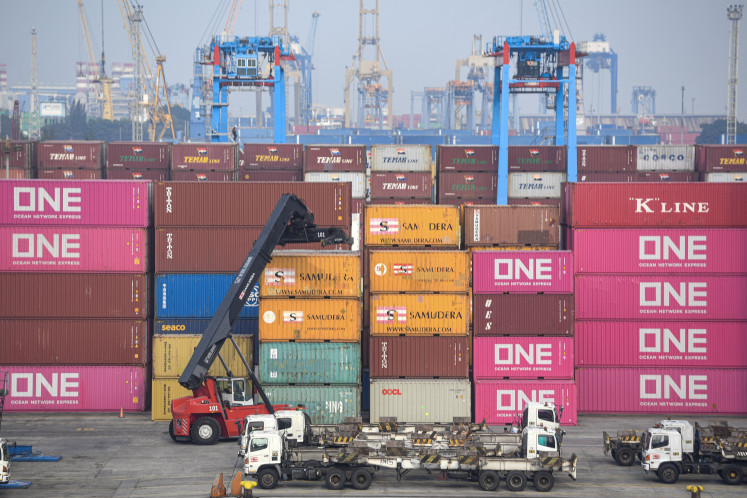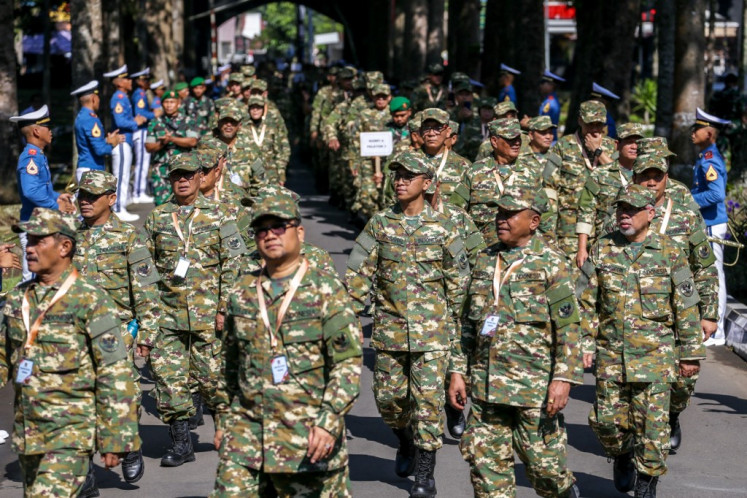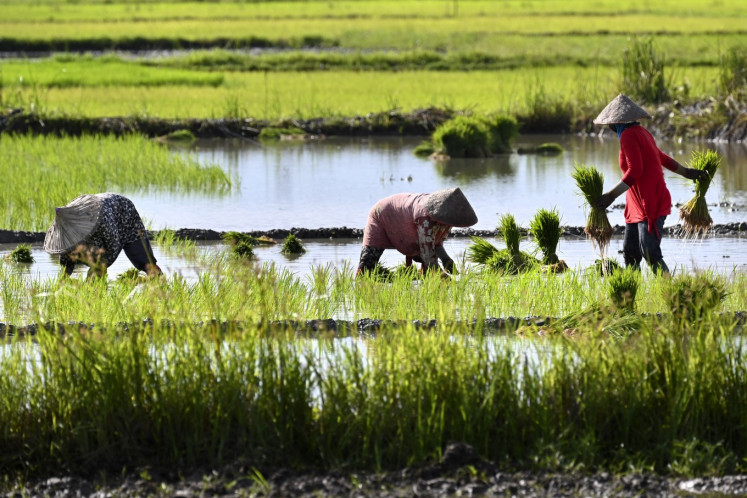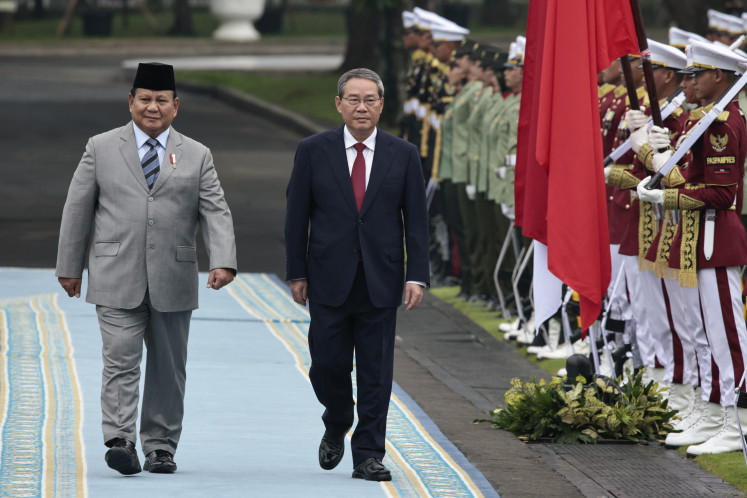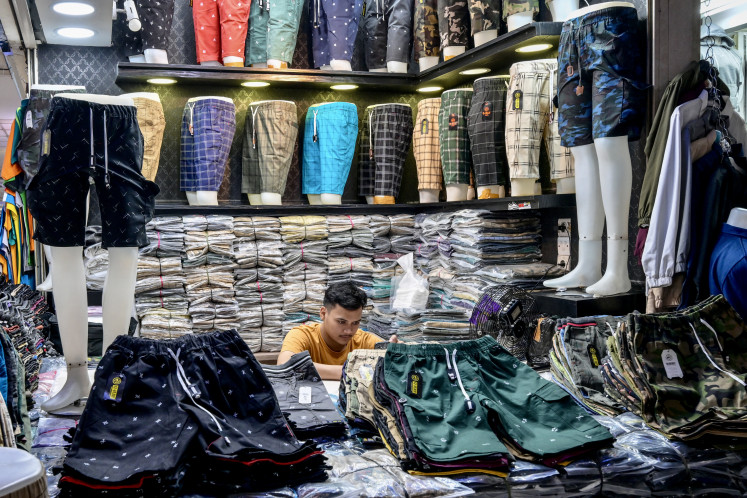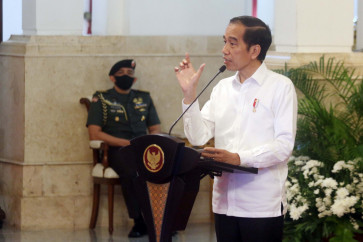Analysis: Much work to be done in new Papuan provinces
President Joko “Jokowi” Widodo officially enacted three laws establishing new Papuan provinces – South Papua, Central Papua and the Papua Highlands – on July 25.
Change text size
Gift Premium Articles
to Anyone
 President Joko Widodo delivers his speech in the distribution event of revolving funds for cooperatives in the State Palace, Jakarta, Thursday (23/7/2020). The Government through the Revolving Fund of Management Agency Cooperatives and Small and Medium Enterprises (LPDB-KUMKM) prepared revolving funds amounting to Rp1 billion then distribute it to the cooperatives in order to recover national economy affected by COVID-19 . (JP/Randi Tri Kurniawan)
President Joko Widodo delivers his speech in the distribution event of revolving funds for cooperatives in the State Palace, Jakarta, Thursday (23/7/2020). The Government through the Revolving Fund of Management Agency Cooperatives and Small and Medium Enterprises (LPDB-KUMKM) prepared revolving funds amounting to Rp1 billion then distribute it to the cooperatives in order to recover national economy affected by COVID-19 . (JP/Randi Tri Kurniawan)
P
resident Joko “Jokowi” Widodo officially enacted three laws establishing new Papuan provinces – South Papua, Central Papua and the Papua Highlands – on July 25. Moving forward, the President has six months to appoint caretaker governors while the government addresses how the new provinces will impact the upcoming 2024 elections.
Deputy Home Minister John Wempi Wetipo said the acting governors for the three provinces would be appointed from among echelon I officials at the ministry. While it appears as though the government is intent on appointing native Papuans to lead the new provinces for the time being, there is currently only one Papuan official that meets the requirements, namely Velix Wanggai.
Komarudin Watubun, former chairman of the special committee for the Papuan special autonomy law, urged the government to consider appointing Papuan civil servants currently occupying positions in government agencies and institutions other than ministries to respect Papua’s special autonomy. He said appointing non-Papuans as leaders would only prove allegations that the government was mistreating Papua.
Additionally, Komarudin suggested that the government consider Papuan leaders with notable track records of integrity and experience even if they were not civil servants. Wempi, a Papuan politician from the ruling Indonesian Democratic Party of Struggle (PDI-P), previously said that not even a Papua regional secretary – an echelon II official – would qualify for the acting governor post.
Whoever appoints the interim governors will face daunting challenges in setting up the new administration within three months of their inauguration. Additionally, the appointing authority must facilitate the gubernatorial and legislative elections in 2024. It will be given a year to do so, and the acting governors will be subject to replacement when a definitive governor and deputy governor are elected.
Separately, Coordinating Political, Legal and Security Affairs Minister Mahfud MD said on Tuesday that the General Election Law would not be revised to accommodate the new Papuan provinces for the upcoming elections. The government has yet to clarify what legal mechanism it will use to bring the new provinces into the electoral system.
The establishment of new administrative regions comes with increases in the number of electoral districts, as well as seats in the House of Representatives, Regional Representatives Council (DPD) and regional legislatures (DPRD). According to General Elections Commission (KPU) chairman Hasyim Asy’ari following a discussion with the Papuan People’s Assembly (MRP), the new electoral districts will be settled this October. He said he hoped that the government would complete the legal basis for the change by the end of the year or before February 2023 at the latest.




